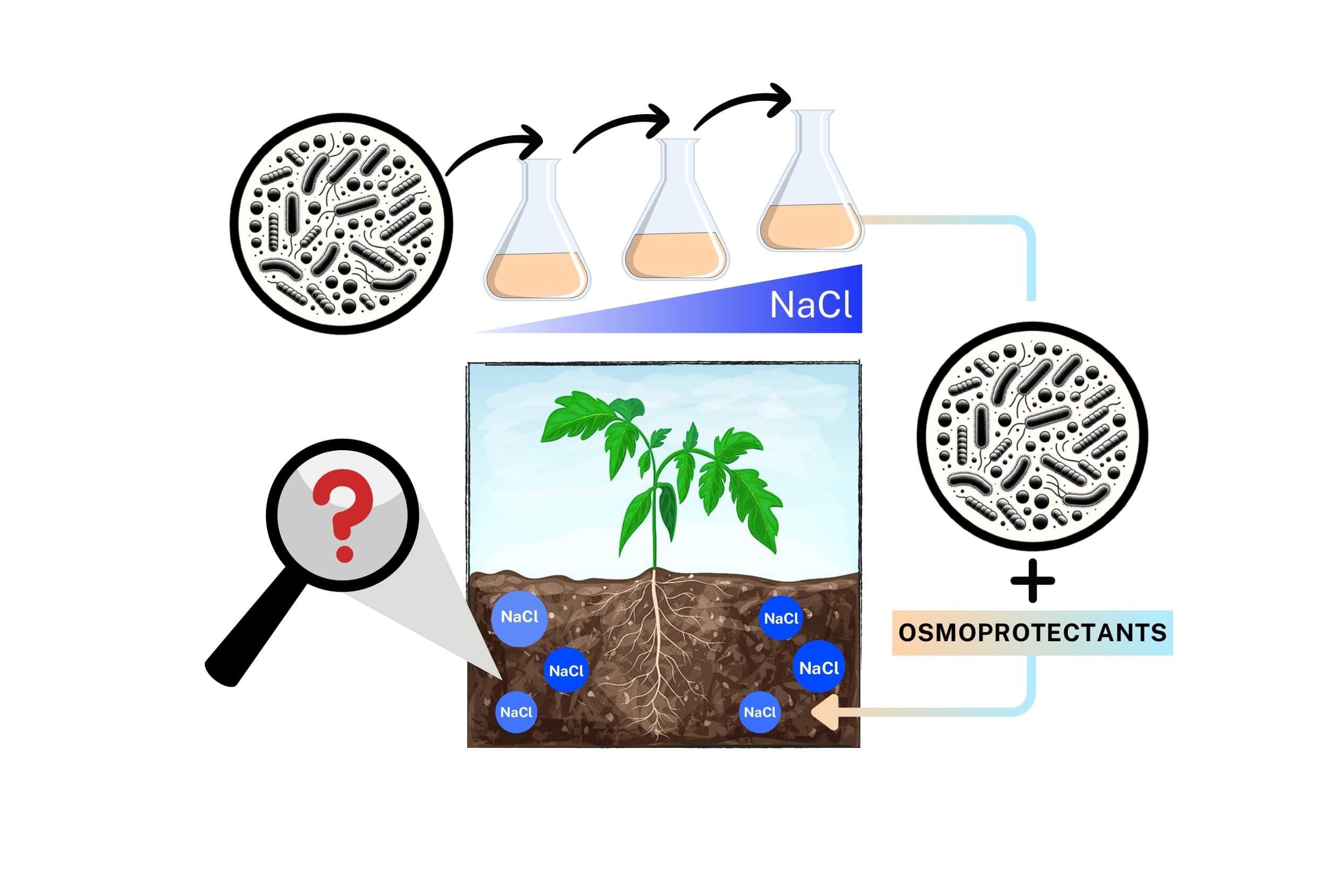The role of Antarctic bacteria in the regeneration of saline soils

19 01 2024
Category: IM Seminar
We would like to invite you to the institute seminar: on Monday 22nd of January at 2 pm in 102B room, Aleksandra Goszcz from the Department of Geomicrobiology will give a seminar entitled The role of psychro- and halotolerant Antarctic bacteria and their osmoprotectants in the regeneration of saline soils with agricultural potential.
Abstract:
Soil salinization is an increasing problem that negatively affects agricultural productivity, primarily due to osmotic stress and ionic toxicity. This issue is continually exacerbated by low rainfall, high evaporation, unbalanced agricultural practices, and other types of industrial activity. Currently, it affects about 33% of the global agricultural potential, and forecasts indicate that by 2050, salinization may impact 50% of arable land.
Supplementing saline soils with bacteria that tolerate high salt concentrations is a promising method for mitigating osmotic stress and ionic toxicity. However, most current research on the bioaugmentation of saline agricultural soils focuses on mesophilic bacteria, which, due to their relatively narrow preferred temperature range, may show limited activity in cooler periods of the year. An alternative to mesophilic bacteria could be the use of psychrotolerant bacteria, characterized by intense growth and high activity across a wide temperature range. Psychrotolerant bacteria are distinguished by highly effective mechanisms of adaptation to cold stress and osmotic stress, which have a similar genetic basis. One of these mechanisms is the production of osmoprotectants. Osmoprotectants are compounds that can alleviate the effects of osmotic stress and facilitate the survival of soil microorganisms and plants. Additionally, they can improve the physical and chemical properties of agricultural soils, including better water retention and reduced salt mobility. However, the potential of these osmoprotectants in improving soil quality and plant growth is still insufficiently researched, as are the relationships between soil properties and their supplementation with bacteria and osmoprotectants.
The goal of the project is to understand the impact of supplementing various agricultural soils with psychro- and halotolerant bacteria, optimized for the production of osmoprotectants. The project aims to discover the complex network of correlations between soil properties and the condition of cultivated plants under the influence of these bacteria and their osmoprotectants.
